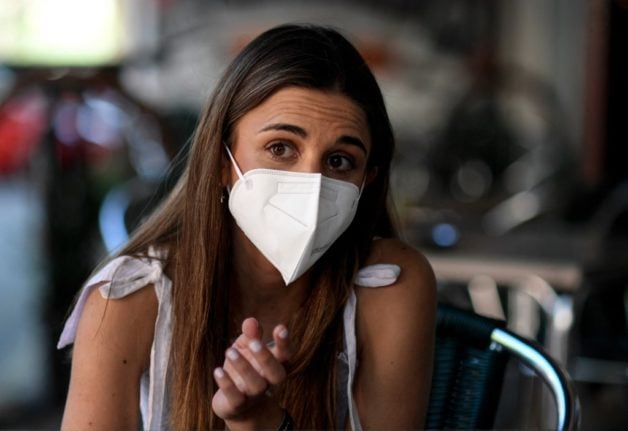According to the Swiss government’s opening plan drawn up in the Spring, further measures are to be relaxed in August.
This includes removing the mask requirement in supermarkets and shops, which would mean masks only need to be worn in public transport and certain public spaces, as well as medical facilities.
In fact, some scientists and experts believe that relaxing the mask rules may actually encourage remaining vaccine holdouts to get the jab, with the risk of getting the virus higher without a mask requirement.
Swiss epidemiologists Marcel Tanner and Marcel Salathé, who previously sat on the government’s Covid Taskforce, says the time has come to remove the mask requirement now that everyone who wants to get vaccinated can.
“Everyone has now had the opportunity to be vaccinated. The time has therefore come for the state to relax the regulations and gradually drop them,” Tanner told the NZZ.
Salathé said changes need to be made soon, as it was “dangerous” to keep restrictions in place.
Swiss Health Minister Alain Berset however said that no consultations with the cantons were currently planned to change mask rules, having said on Wednesday that tighter restrictions – including requiring the Covid certificate – might be put in place in restaurants and bars should infections continue to climb and vaccination willingness falls.
Under the proposed rules, a Covid certificate would also be required to visit hospitals and medical faculties, as well as old age homes.
When making the announcement in April that there would be further relaxations in August, the government left it open as to whether the rules would be relaxed or extended.
“Should the epidemic worsen despite everything and the health system is threatened with overload, the Federal Council reserves the right to maintain or reintroduce certain measures such as mask wear, protection concepts, distance rules or capacity restrictions for a certain period of time” the government said at the time.
Another epidemiologist, Andreas Cerny, told the NZZ he felt that the rules should be further relaxed in September, so as to give people who are returning from summer vacation and have not had a chance to get the jab a chance to be vaccinated.




 Please whitelist us to continue reading.
Please whitelist us to continue reading.
“Everyone has now had the opportunity to be vaccinated. The time has therefore come for the state to relax the regulations and gradually drop them,” Tanner told the NZZ.
Except for children under 12. We seem to forget about them.
Can you please do some research on the (huge) risks of administering this experimental vaccine to our children?
speaking as a scientist, this seems like a bad idea. I suppose they want to force people to get their shots, but they take on two risks. first, there are at-risk people such as immunocompromised people who will face additional dangers. Second, there will be an increase in infections that can breed new variants. Politicians do not seem to understand the second point, but this is exactly how we got the alpha and delta variants. At what point might we get a variant that can infect vaccinated people at high frequency?
If the politicians had any guts they would follow the science, and do so at the level of R values and numbers of infected rather than hospitalizations and deaths, which lags by 3 weeks or more. If they had any guts they would promote activities outside and not eating in restaurants indoors, for example. Even better, require proof of vaccination to eat or work at an indoor restaurant or bar.